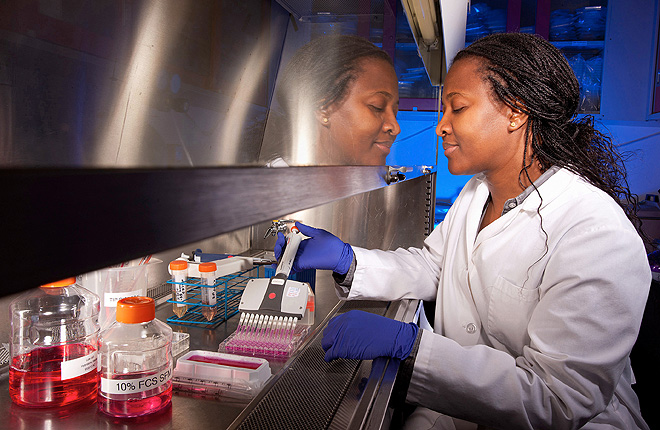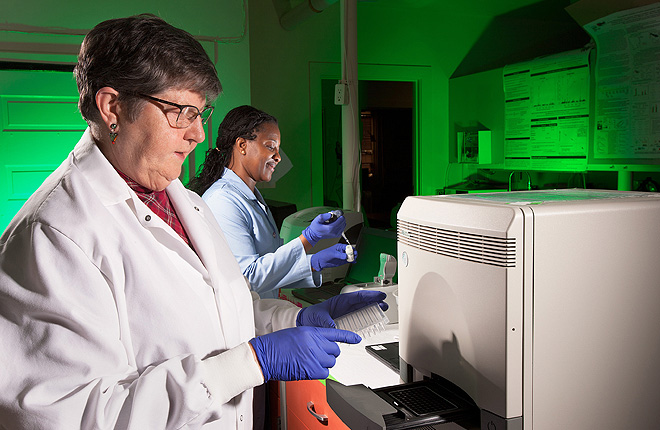Shoring Up Viral Resistance in Pigs
The United States is the world's third-largest producer and consumer of pork, with more than 20,000 million pounds produced under federal inspection in 2014 alone. Now, a multidisciplinary team of scientists has discovered a genetic variant in pigs that is involved in a serious disease. The findings may help in breeding pigs with improved disease resistance.
The most deadly and complex infectious disease of pigs globally is porcine respiratory and reproductive syndrome (PRRS), which costs the U.S. swine industry upwards of $664 million annually. PRRS results in late-term reproductive failure, stunted growth, and early death in swine.
The research team, known as the PRRS Host Genetics Consortium, includes Agricultural Research Service (ARS) chemist Joan Lunney at the Animal Parasitic Diseases Laboratory in Beltsville, Maryland, and scientists at Kansas State and Iowa State universities. Their goal is to identify genes linked to resistance and susceptibility to PRRS viral infection in commercial swine.
In earlier research, several consortium scientists found a healthy immune response to the PRRS virus in up to 15 percent of commercial pigs. A family of genes on one chromosome was linked to an early immune-system response to infection. These genes express a defensive protein called "GBP5" (guanylate-binding protein 5) when the pig is exposed to the virus.
In the laboratory, the researchers then used a method called "functional genomics" to further study these genes in a diverse group of pigs exposed to the PRRS virus. (Functional genomics is the study of how genes function and adjust under changing conditions, such as infection.)
The researchers identified a mutation (genetic variant) of the GBP5 gene in 85 percent of the infected pigs studied. The gene with this mutation does not express the defensive protein.
"By testing healthy pigs exposed to the virus, we were able to identify which pigs can make the defensive proteins and which can't," says Lunney. "Pigs with the genetic variant can't make the defensive GBP5 protein, and they have a lessened immune response to PRRS virus infection."
The genetic variant the team identified will help breeders select pigs, regardless of breed, that have the favorable genes. A study describing the finding appeared in BMC Genomics. — By Rosalie Marion Bliss, ARS Office of Communications.
"Shoring Up Viral Resistance in Pigs" was published in the July 2016 issue of AgResearch Magazine.
Key Facts
- PRRS (porcine respiratory and reproductive syndrome) is a pig disease.
- PRRS costs the U.S. swine industry $664 million a year.
- Scientists found a gene mutation that may help in breeding pigs with better PRRS immunity.
Full Story








